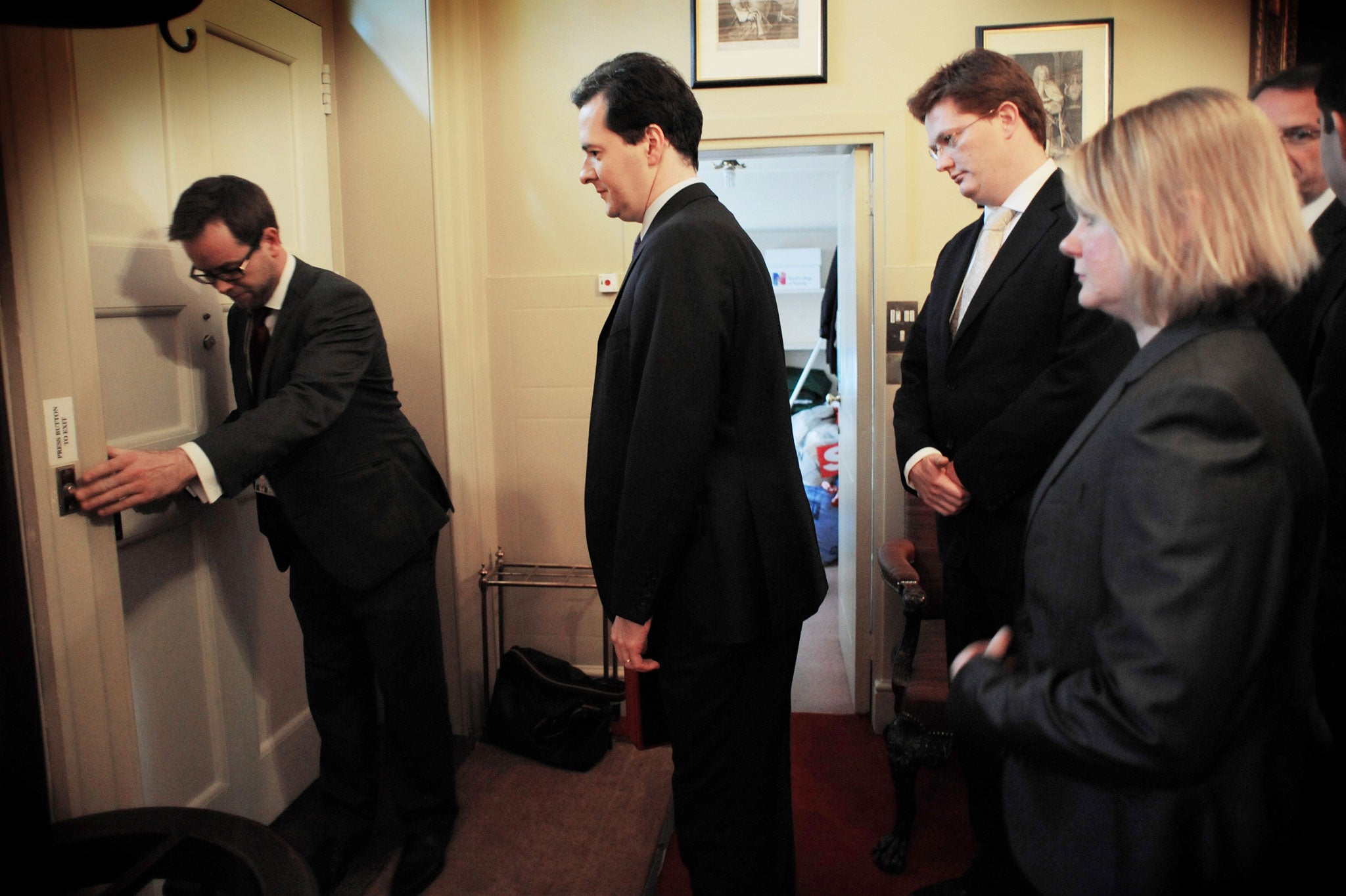Some years are best forgotten. And, for the British economy, 2012 is one of them. Over the past 12 miserable months Britain slipped backwards, experiencing its first double-dip recession since the 1970s. The UK's national income is now likely to be smaller at the end of 2012 than it was at the beginning of the year.
The contraction began in the final three months of 2011 and the economy did not start growing again until this summer, when output was boosted by Olympic ticket sales. But most indicators are now pointing down again and analysts are worrying about the possibility of a "triple dip".
It is true that employment has held up remarkably well given the stagnation of output. The unemployment rate has actually ticked down a little this year. But around half of the new jobs created are part-time. Under- employment – people who want to work more hours but cannot find it – is now at very high levels. Hardly cause for celebration.
This is not what was supposed to happen: 2012 was supposed to be a year in which things started to get better. So whose fault is it? The Chancellor, George Osborne, blames the eurozone crisis, pointing out that an inherently flawed single currency project and political dithering by Continental politicians have undermined demand for our exports and harmed our big banks. An unexpected spike in inflation, which has cut domestic consumer spending power, is also presented as a culprit. Yet others complain that the Treasury has not helped. The Labour opposition and a growing number of economists say the Chancellor's deep spending cuts sucked demand out of the economy at the worst possible time. George Osborne would not admit it, but the new capital expenditure projects he outlined in his latest mini Budget represent a tacit acceptance of this critique.
There was some progress in Europe this year. Greece teetered on the precipice but confounded predictions that Athens would crash out of the single currency. The Spanish government swallowed its pride and applied for a bailout for its rotten banks. And, in September, the president of the European Central Bank, Mario Draghi, finally faced down the conservative German Bundesbank and promised he wouldn't let the borrowing costs of member states spiral out of control. Europe has stabilised. But with several Southern member states still struggling with vast national debts and levels of unemployment not seen since the Great Depression, it is the stability of a dormant volcano.
There were few sources of hope elsewhere. America re-elected Barack Obama but politicians in Washington are still deadlocked over how to balance the US budget. The country shuffles closer to a 'fiscal cliff' next year that could trigger automatic spending cuts and tax rises on a scale that would surely plunge America back into recession. The mighty Chinese economy avoided the hard landing that some had forecast in 2012. However, November's leadership transition in Beijing left reformers marginalised. China remains addicted to investment spending, storing up the possibility of a huge banking crisis in the world's second largest economy.
Weak growth is already playing havoc with our public finances. This month, the Chancellor admitted that he would miss his own self-imposed target of reducing the national debt by 2015-16. Mercifully, the 'Fiscal Mandate' turned out not to be mandatory, sparing us further immediate austerity. Yet a deficit reduction programme that was supposed to take five years will now take eight. And many people on benefits will now face a real-terms squeeze on their incomes starting next year, just as more state workers face redundancy because of departmental spending cuts.
The New Year also brings the prospect of a downgrade of Britain's AAA credit rating by one of the big agencies. In July, as the Bank of England takes on new regulatory powers, the Old Lady of Threadneedle Street will have its first foreign governor in Mark Carney. The Canadian central banker, unveiled in November, has been presented as an economic miracle worker by some of his British fans, not least George Osborne. If 2013 turns out anything like as bad as 2012 for the British economy, Mr Carney will need to be.
@juliangough Lodging money into my Irish bank account feels like leaving it in a cardboard building that's only caught fire 3 times in the past 4 years
Julian Gough, author
@giles_fraser George Carey defending deserving and undeserving poor distinction in the Mail. In tough times, poor always get blamed for their poverty
Giles Fraser, former Canon Chancellor of St Paul's Cathedral
@Peston Paradox for UK of eurozone's mess: growth hurt by e'zone crisis; if e'zone stabilises, UK debt looks more ugly in ugly contest #bbceconomy
Robert Peston, BBC Business Editor
@TonyTassell Surprised by the sympathy for Goodwin this morning. A lot of people have lost a lot more than a silly title as a result of the financial crisis
Tony Tassell, financial news editor, Financial Times
@Stellacreasy Youth unemployment is now 1 in 5 – highest since 1992. Not just a generation but entire society now watching potential being wasted…
Stella Creasy, Labour MP for Walthamstow
@GeorgeMonbiot Tax cuts, benefit cuts, public sector pay cuts. This is undisguised economic warfare by the rich against the poor
George Monbiot, author and columnist
@Mrjohnofarrell Do Clinton Cards sell one that says 'Sorry you're going into administration'?
John O'Farrell, comedy writer

Join our commenting forum
Join thought-provoking conversations, follow other Independent readers and see their replies
Comments